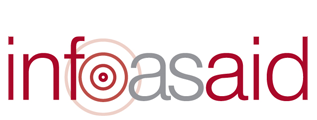Internews and the BBC World Service Trust are partners in a DfID funded consortium focusing on improving how aid agencies communicate with disaster affected communities. The emphasis is on the need to deliver information, as aid itself, through the most appropriate channels ...more
Radio offers a lifeline to Pakistan as crisis worsens
Studio Manager for the Lifeline Bulletins in Islamabad, Pakistan
In response to the devastating floods in northern Pakistan, lifeline radio programmes are to be broadcast in the most severely affected areas through the BBC Urdu service.
With much of the region's transport and communication links destroyed, the programmes will plug a critical gap in delivering information in the immediate aftermath of the disaster using one of the only media channels still available - radio.
Since heavy rain began falling two weeks ago, some 1,400 people have died and aid agencies say three million people have been affected by Pakistan's worst floods in 80 years, warning that thousands are still cut off and waiting for help. The new 'infoasaid' service, a collaborative project developed by BBC World Service Trust and Internews, will transmit lifesaving information to the hundreds of thousands of people. It is the simplest information such as where to get food or how to avoid diseases that can save thousands of lives.
It is the simplest information such as where to get food or how to avoid diseases that can save thousands of lives.
The United Nations has said around 98,000 people have already lost their homes or been forced to leave, and that figure is set to rise. With forecasters predicting further heavy rain fall and flash floods, and aid agencies warning of the threat of waterborne diseases, the service will provide vital information including how to stay safe, avoid disease and access aid.
BBC Urdu will transmit six ten-minute bulletins daily, three in Urdu and three in Pashto. As part of an increasingly nationwide response, the programmes will be broadcast on up to 34 BBC partner stations, reaching over 60 million people.
Director of the BBC World Service Trust, Caroline Nursey says: "This humanitarian crisis is growing every day and is now on a huge scale. Very often it is the simplest information such as where to get food or how to avoid diseases that can save thousands of lives. This is what lifeline programming will deliver."
Infoasaid is funded by UKaid from the Department for International Development. Minister of State for International Development, Alan Duncan says:
"As flooding continues to cause destruction and suffering in Pakistan, many will find themselves cut off from family, friends and home. While of course not everyone will be able to access a radio, this is a proven way of reaching as many people as possible when no other means of communication are available.
The lifeline radio programme is another great example of potentially lifesaving innovation from the BBC World Service Trust, providing essential emergency advice and information on staying healthy and accessing food and shelter, to help those affected cope with the immediate effects of this disaster."
- Login or register to post comments



